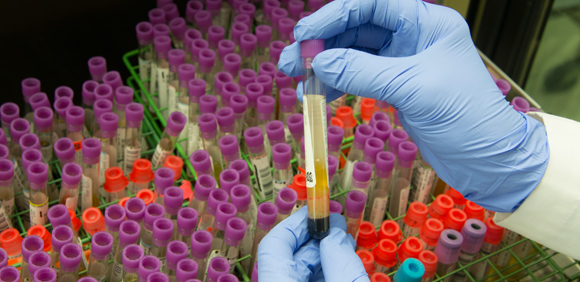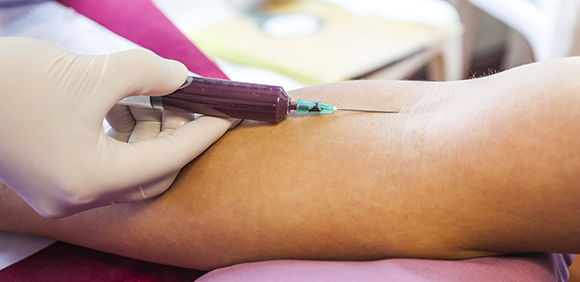
WIHSC enrolls participants from four locations on the Washington University and Barnes-Jewish Hospital campus, including the women’s health clinic, the fertility clinic, and labor and delivery. Participating women range in age from 15 to 48 years and represent various racial and ethnic backgrounds, as well as diverse educational and socioeconomic levels.
Banked samples for research include:
- Maternal samples such as blood (serum and plasma), vaginal swabs and urine are collected from women during each trimester.
- Delivery specimens such as placenta, cord blood (serum and plasma), blood, urine, vaginal swabs and amniotic fluid are obtained at labor and delivery.
- IVF samples provided by patients include follicular fluid samples and blood.
To learn more about our samples or schedule a consultation, please complete the specimen request form.

By enrolling new subjects at our clinical sites, WIHSC researchers can collect women- and infants-related biospecimens not in our bank that are needed for your research.
WIHSC researchers will consent subjects and collect specimens and related data. Prospective sample collection may include granulosa cells, discarded oocytes and amniotic fluid. Samples such as blood and semen can be collected from patients’ partners.
Specimens can be sent immediately or frozen and stored at your discretion.
Please contact us for more information about prospective collection services.

To qualify for use of WIHSC samples, your research must be focused on the future of women and infants health, and you must have a current IRB-approved protocol from your organization. In addition, all requests must receive approval from the WIHSC advisory board.
To request a consultation, please complete the specimen interest form.

Consent and Collection. All specimens we collect are processed per the WIHSC protocol. Patients are consented at various sites at the Washington University Medical Center, and samples are collected at various times during the pre-pregnancy and pregnancy cycle, as well as delivery.
Patient Privacy. All collected samples are coded to de-identify patients in compliance with the Health Insurance Portability and Accountability Act (HIPAA), unless the patient agrees to share identifiable information. Patient privacy and protection is also enforced by Institutional Review Board (IRB) oversight of WIHSC operations.
Storage. Specimens are stored in liquid nitrogen with the Tissue Procurement Core (TPC) or in -80-degree Fahrenheit freezers that are secured in WIHSC labs on the campus of the Washington University Medical Center.
Requesting Specimens. Researchers requesting use of WIHSC samples will be asked to present their research projects to the WIHSC advisory board prior to obtaining IRB approved protocol. Thereafter, a Specimen Collection and Processing Agreement should be completed for the services requested.
Receiving Specimens. Once specimens are selected and agreed upon, a copy of the IRB approval letter from your organization is submitted to WIHSC. In addition, either a Materials Transfer Agreement (MTA; for academic/non-profit institutions only outside Washington University) or a Code Access Agreement (for researchers at Washington University) is submitted to the WIHSC. Any requests for WIHSC samples by a for-profit company will have an industry appropriate MTA for the transfer.
Distributing Specimens. Specimens may be shipped or may be arranged for pick up at the BJCIH facility at the Washington University Medical Center.




